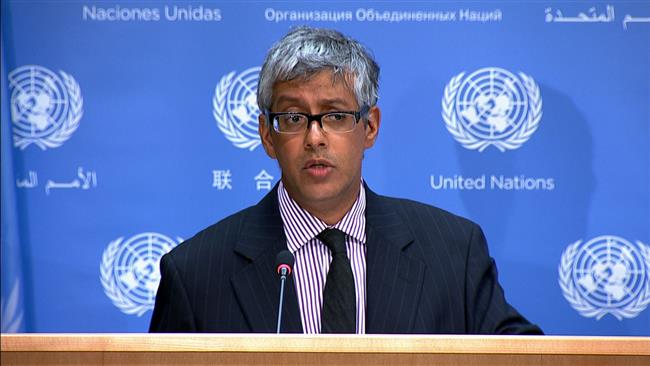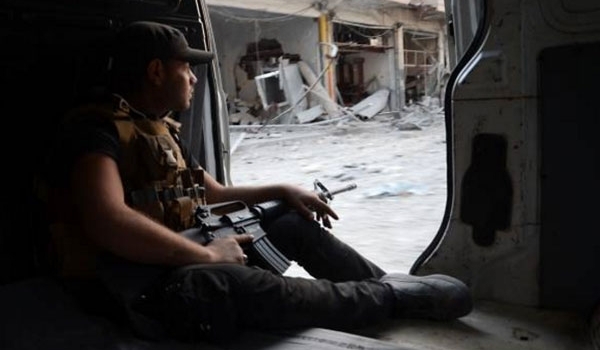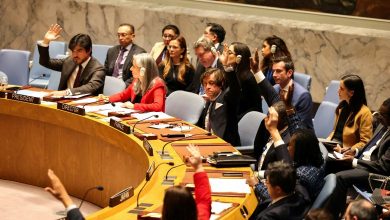Saudi must grant reporters access to Yemen: UN


The United Nations has demanded access to the “man-made catastrophe” in Yemen after Saudi Arabia imposing a blockade on the war-hit country denied entry to three reporters traveling on a UN aid flight to the Yemeni capital Sana’a.
“We do want not just to be able to bring in aid, which is of course a crucial aspect of the work we do, but we also want the world to know what’s going on. And so steps like this do not help, because again this has been a large man-made humanitarian problem, the world needs to know and journalists need to have access,” said United Nations spokesman Farhan Haq on Wednesday.
Haq made the remarks after the Saudis blocked a United Nations charter flight carrying aid agency staff from landing in Sana’a, which is in control of the Houthi Ansarullah movement, on the grounds that it could not guarantee the security of three journalists working for British state-run broadcaster BBC on board.
“As our colleagues have said this partially explains why Yemen, which is one of the world’s largest humanitarian crises, is not getting enough attention in international media. The lack of coverage is hindering humanitarian workers’ efforts to draw the attention of the international community and donors to the man-made catastrophe that the country is experiencing,” he added.
After blocking the flight, Saudi officials claimed that all inbound flights to Yemen must land in the country’s southern port city of Aden, which is under the control of the former government, headed by former President Abd Rabuuh Mansour Hadi, a staunch ally of Riyadh.

The Houthis took control of state affairs in 2014 after Hadi resigned, despite Ansarullah’s calls on him to review the decision. Hadi’s resignation created more chaos in a country already grappling with al-Qaeda terror threats.
A brutal Saudi aggression, launched to reinstate Hadi, has so far killed more than 12,000 people, most of them civilians.
The conflict has also left more than 17 million people in the country food-insecure, with some 6.8 million of them in need of immediate aid.




